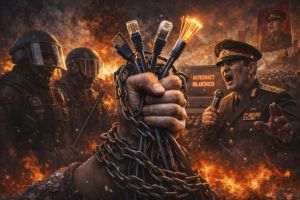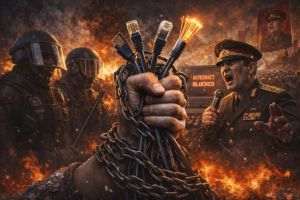A new psychological and political barrier was just crossed in the battle for the Middle East. The decision to assassinate the Hams leader, Sheik Ahmed Yassin, by the Israeli army, was publicly assumed by the Prime Minister Sharon. From his standpoint, this is just a just retaliation targeting the one who inspired and spiritually legitimized suicide bomb attacks and all other terrorist actions carried out against the Israeli population by Hamas militants. The idea of punishing not the tool that strikes, but the person that inspires and legitimizes the terrorist action seems not only justified, but also effective. The power and influence of such a leader cannot be easily replaced by the one who - formally - might take his place. Weakening from inside the organizations acknowledgeable for violence and atrocities in Israel by beheading their leadership could be a way to lower their combative capacity.
But the costs of such an approach to the fight against terrorism are huge. There is no doubt that the Israeli government believes it must and can assume them. I am speaking not only of political costs, but also human, because the bloodshed will beget more blood, sooner or later - if taking into account European history - and this could go on endlessly, for centuries, through the hateful inertia of each party.
Within the Arab world, after the inevitable emotional reaction (to use the event as a booster for the Yassin movement), the key-message was "revenge". They promised more violence, in order to affect even more all Israeli communities, in Israel or outside its boundaries. This kind of decision leaves just unchained violence to decide for the future.
The reaction of the main actors involved in the Middle East equation, the ones attempting - unsuccessfully, so far - to bring both parties to negotiate, was not less significant. Washington seems less interested in labeling the event, but rather to keep under tight control tensions raised by the event. They are not condemning, they are not supporting. The European Union was straighter, and the one who found the way to say it was the British minister of Foreign Affairs. He said that the action of the Israeli army was not permitted by law, it is unacceptable and most probably ineffective, if the aim is to find a peaceful solution. The UN secretary general went even farther, stating that the assassination of Yassim is a violation of international norms. The Russian Federation also condemned the action, but in more general terms, underlining the counter-productivity of the Israeli policy. We expect even more disputes around this event, concerning its status (is it legal? is it justified?) and the responsibility of those who took the decision and those who carried out the action. But the main problem is: which are the new perspectives, after this threshold was trespassed? If the decision wasn't a singular one - and the Israeli government showed this quite clearly - then the obvious question is: "who's next?" Maybe the leader of the Palestinian Authority, labeled as terrorist and supporter of terrorism by Sharon? Such speculation, no matter how interesting from a journalistic point of view, lacks a solid base. If the policy of the Israeli government is to completely withdraw its forces from the Gaza strip, handing over the responsibility to the Palestinian administration, eliminating Arafat would be counter-productive. Moreover, doing again the same thing might lead to a much stronger reaction of the international community, including the UN. The Israeli cabinet could hardly defend its position in a debate at the Security Council, against evidence and arguments showing a violation of international norms by Israel. Having the UN officially condemning Israel is a disaster the country cannot afford - and the US cannot afford it either.
It is an illusion to think that the current tension might generate new possibilities for negotiation. Nobody believes in such ideas; moreover, none of the main actors of this drama has the credibility to further negotiate or the political resources to bring to reality the results they could agree upon.
Like a triangle of complete hopelessness, the current situation can be defined by three negative angles: the next battle cannot be avoided, negotiation is irrelevant and none of the parties can gain victory.















































